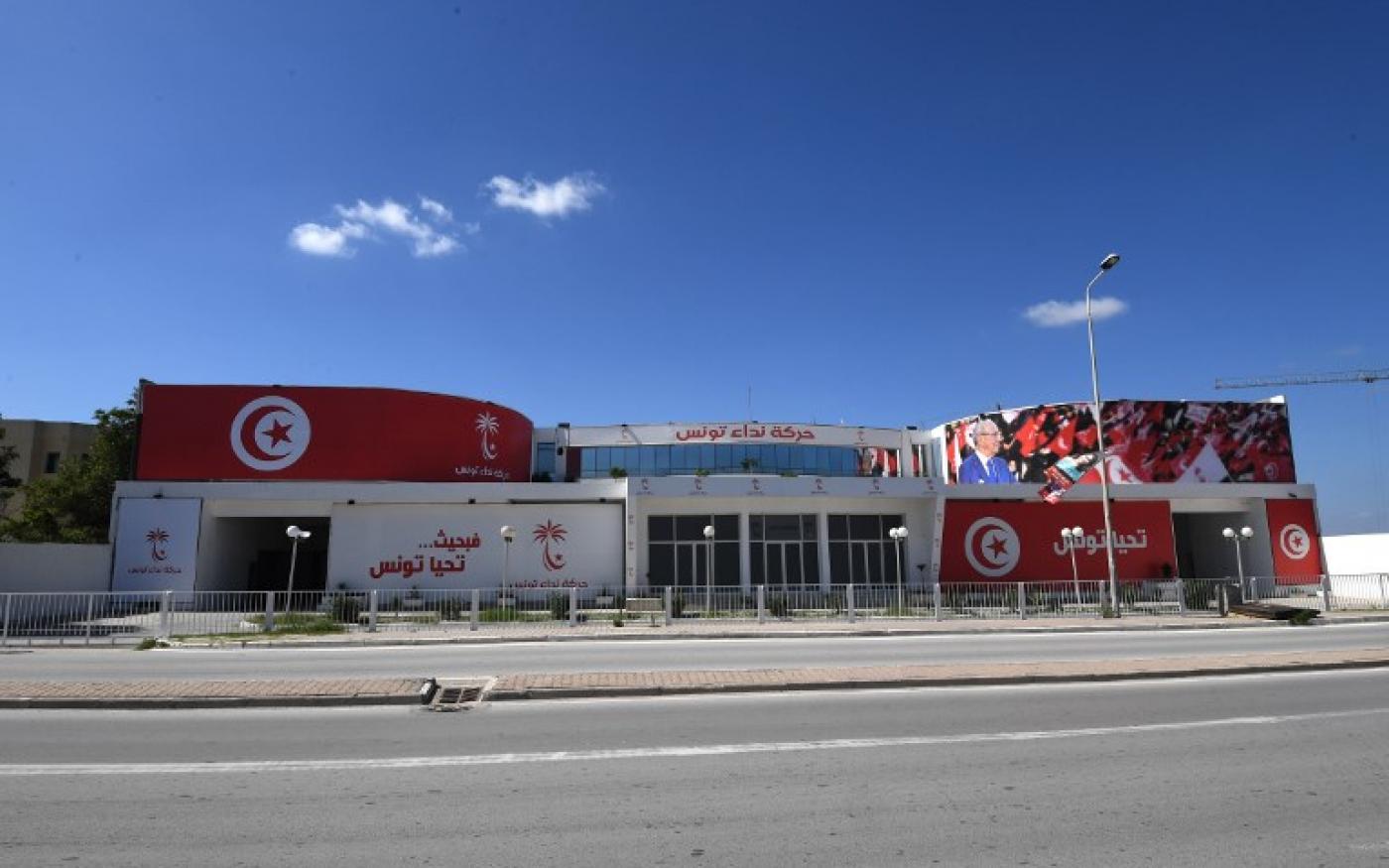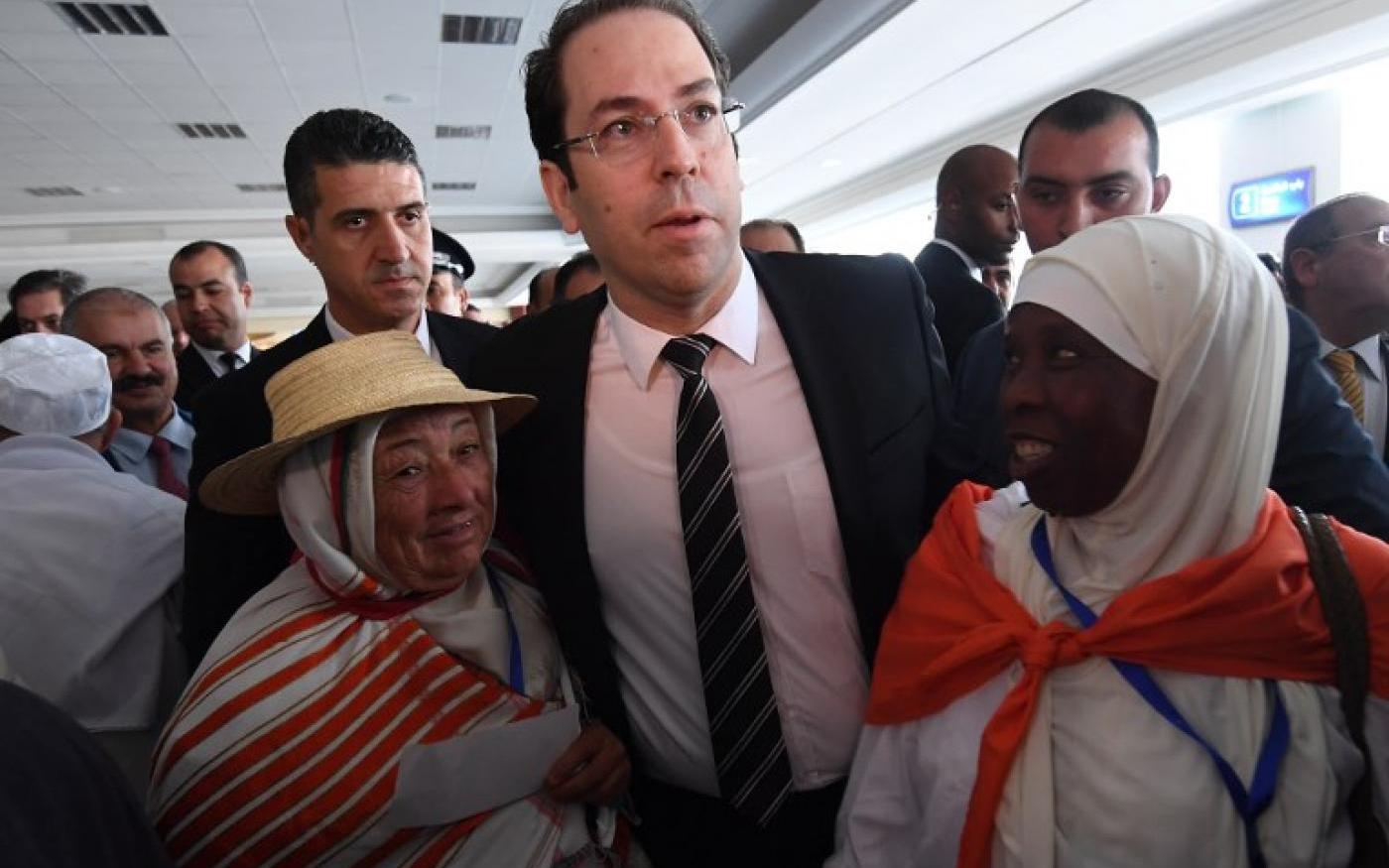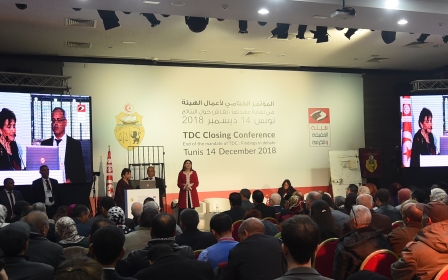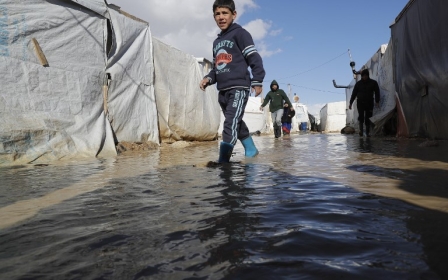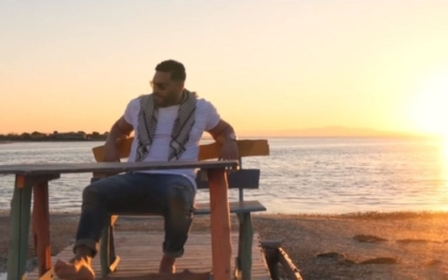Nidaa Tounes 'is no longer part of the picture'
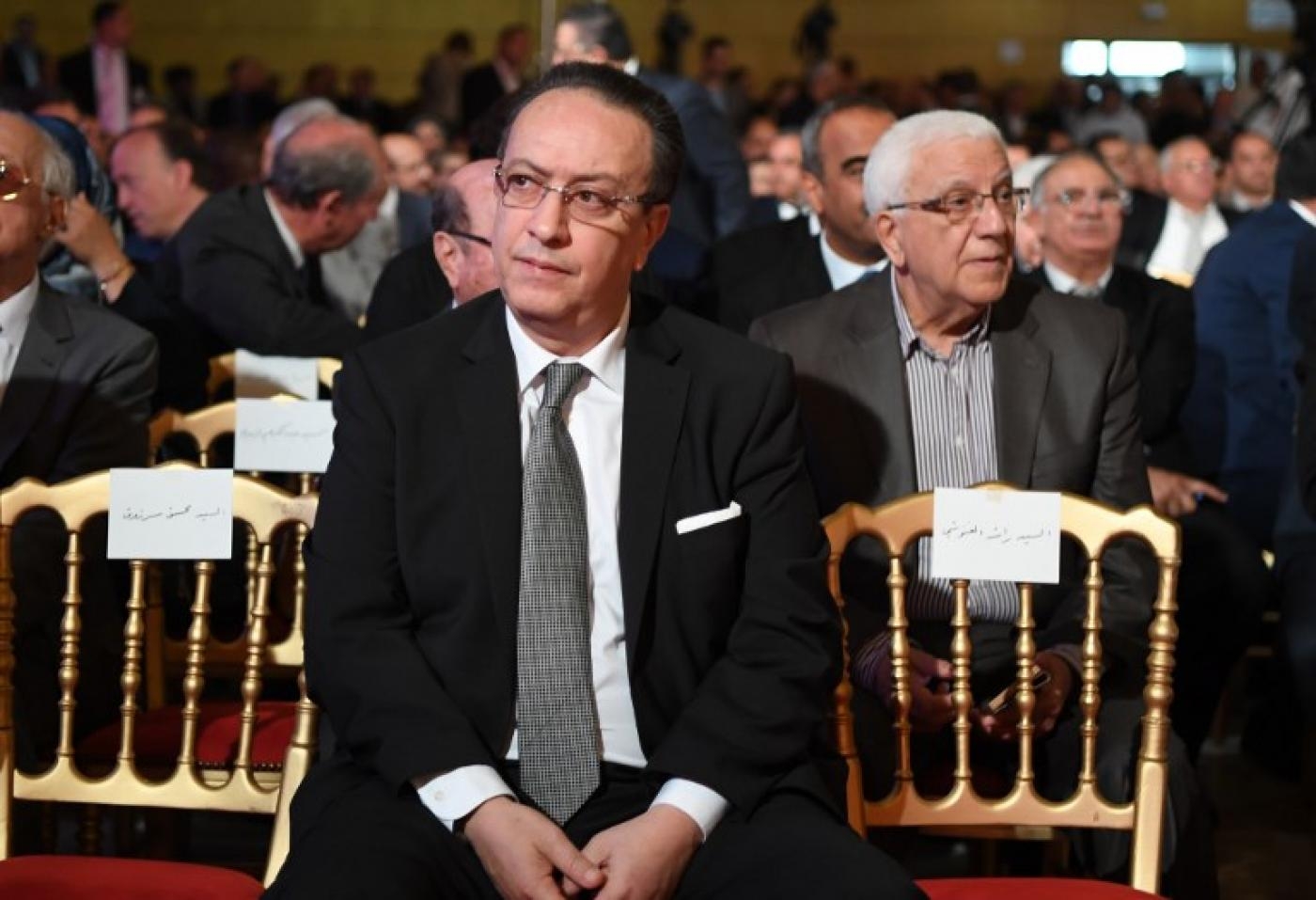
Beji Caid Essebsi has been replaced by an advertisement.
Just a few days ago, a huge portrait of the president and the founder of Nidaa Tounes was on display at the party's headquarters in La Marsa, a coastal town northeast of the capital Tunis, only to be replaced with the ad.
Middle East Eye has visited the building on several occasions. It's brand new and has never been used. Only a gardener and a housekeeper occupy the facility, which appears as empty and abandoned as the ruling party.
On 14 March, eight out of 12 members of a commission preparing the party's first congress, including chairman Ridha Charfeddine, resigned from the body.
The congress, postponed several times and recently slated for 6 April, is meant to bring change to the party's leadership through a transparent election. Since 2016 the party has been led by Hafedh Caid Essebsi, the president's son. In his three years in the role, he has faced much criticism, with several MPs leaving the party.
When the members of the commission resigned earlier this month, they said they were leaving Essebsi "with full responsibility" for the upcoming congress, and some appear unsure he is up to the task.
"I am not convinced that the outcome of this congress will suit Nidaa Tounes' activists," Charfeddine told Middle East Eye, choosing his words carefully. "Many people believed in this congress, but its outcome seems uncertain. I fear that the result will not be acceptable for Tunisians."
'The crisis and the mismanagement are primarily the president's son responsibility'
- Hatem Mrad, political analyst
Charfeddine didn't mention Hafedh Caid Essebsi, but he is likely the reason he resigned from both the commission and from parliament.
"If there is no real awareness, I would be forced to resign from Nidaa Tounes. If the current leadership remains in office, I don't see myself working with these people," he said.
For political analyst Hatem Mrad, the facts are obvious: "Hafedh Caid Essebsi's arrival caused the party's decline. The crisis and the mismanagement are primarily the president's son responsibility."
'No longer a party, but a faction'
After the 2014 elections, Nidaa Tounes became the largest party in parliament, with 86 MPs. Today, the party has only 41 seats and is in third place.
In 2012, the party wanted to congregate influential and powerful groups against Ennahda, a self-described Muslim democratic party, and formed alliances with trade unions, leftists and other movements. But today, many have left the ship because, Mrad said, the president's son wanted to take over.
"Hafedh Caid Essebsi is a man who divides as his father gathered. Nidaa Tounes is no longer a party but a faction with a leader and his clientele," he said. "There are no longer any activists, but ambitious people who want a job."
Any attempt at bringing people together seems doomed to failure. On 19 March, a nearly six-month old merger between the Free Patriotic Union (UPL) and Nidaa Tounes came to an end. With the UPL's departure, Nidaa Tounes could lose another 10 or so seats in parliament.
The party congress' failure to materialise is seen as another recent failure.
"I don't believe it will happen," Mrad said. "The son will only agree to a congress if he is sure to be elected. As long as he has doubts about his authority and leadership, he won't take the risk."
But Hafedh Caid Essebsi's popularity is at its lowest. On social media, the younger Essebsi is the target of a massive backlash. He doesn't even appear in the latest poll from Tunisian consulting firm Sigma Conseil asking voters who they intend to elect.
However, the failure to hold a congress could weaken Nidaa Tounes even further.
"The party will be crippled in terms of legitimacy," said Mrad. "It is absurd that a party that campaigns for democracy and is part of a post-revolutionary framework is unable to hold its own congress."
Selim Kharrat, president of Tunisian NGO Albawsala, which monitors state institutions, is more circumspect about the congress: "The question is not whether it will take place, but with whom. Those who didn't leave are more motivated by opportunism than by loyalty to Hafedh Caid Essebsi. If the congress is held, I don't expect much."
Playing both sides?
None of Nidaa Tounes' senior officials responded to MEE's requests for comment. The party's communications department was also unable to provide any information.
Regarding Charfeddine's resignation, Tunisian media reports have quoted an anonymous source close to Hafedh Caid Essebsi accusing the former head of the commission of playing both sides by making moves towards Tahya Tounes, the breakaway party headed by Prime Minister Youssef Chahed.
"He can't have a foot in Nidaa Tounes and another in Tahya Tounes," the source was quoted as saying.
"We are pretty clear about this matter: all party members who have joined or supported Tahya Tounes cannot attend our congress. However, the organising committee had another opinion."
Launched in January, Tahya Tounes (Long Live Tunisia) is backed by the pro-Chahed National Coalition parliamentary bloc, which was created at the end of last summer.
With 44 MPs, Tahya Tounes outranks Nidaa Tounes and is now the second-largest political force in parliament. Tahya Tounes supports Prime Minister Youssef Chahed, who was ousted from the presidential party a few months ago.
"Tahya Tounes is Nidaa's twin party. They brought a glimpse of newness. They have the youth's sympathy. They also benefit from the fact that their leader Youssef Chahed is at the centre of political power," said Kharrat.
"People are pragmatic. At the moment, Tahya Tounes seems to be the right party to bet on."
In February, the Sigma survey polled Nidaa Tounes at 20 percent, with only 11.9 percent for Tahya Tounes. But Mrad believes that Nidaa Tounes' ongoing downfall will benefit Tahya Tounes more in the upcoming weeks.
"Those who will be sure that Nidaa no longer has a future will join Tahya Tounes by next month before its constitutive electoral congress [announced at the end of April]. If they take part in this congress, they will be considered as founding members," he said.
"Some will wait a little longer and decide before the elections. Those who join the party too late will be seen as opportunists."
'They no longer have political ideas'
However, one commentator, who wished to remain anonymous, believes that Hafedh Caid Essebsi will try to keep a semblance of a party.
"There will always be people to stick by his side because he has the president's support, even if the political power is now in the Kasbah [the prime minister's office] and not in Carthage [the presidential palace]," they said.
"But also because he knows their secrets and has files regarding them. They're held on a leash." The same thing is said about Chahed.
Beyond the party's organisational issues, Nidaa Tounes fails to establish itself in the political game. "They no longer have political ideas," according to Mrad.
'They no longer have any commitment or beliefs. What is happening is comparable to political life in Algeria'
- Hatem Mrad, political analyst
"They no longer have any commitment or beliefs. What is happening is comparable to political life in Algeria or under [former Tunisian autocrat Zine al-Abdeine] Ben Ali: politics are reduced to simple administrative routine."
He points out that in 2014, Nidaa "wanted to do socially targeted politics. In the end, they only pursued emergency policies. They didn't carry out their programme because of the economic crisis, the security issues, the corruption..."
Nidaa Tounes wanted to be a centre-right party defending the achievements made in education and women's rights by Tunisia's first leader after independence Habib Bourguiba. Now it is no longer audible.
"They present themselves as the only ones who can defeat Ennahda. This is their only program, even though Nidaa Tounes and Ennahda were in the same government for four years," said Kharrat.
Moreover, Kharrat noted, "the votes of Nidaa Tounes' MPs have shown a rather conservative neoliberal attitude on social issues. Nidaa Tounes repeatedly opposed draft bills proposing gender equality".
Women provided a substantial supply of votes for Beji Caid Essebsi's election, but they may reconsider their vote this year.
"Nidaa is no longer part of the picture," said Mrad. Just like the Marsa building.
This article first appeared on MEE's French site and is available here.
Middle East Eye propose une couverture et une analyse indépendantes et incomparables du Moyen-Orient, de l’Afrique du Nord et d’autres régions du monde. Pour en savoir plus sur la reprise de ce contenu et les frais qui s’appliquent, veuillez remplir ce formulaire [en anglais]. Pour en savoir plus sur MEE, cliquez ici [en anglais].


